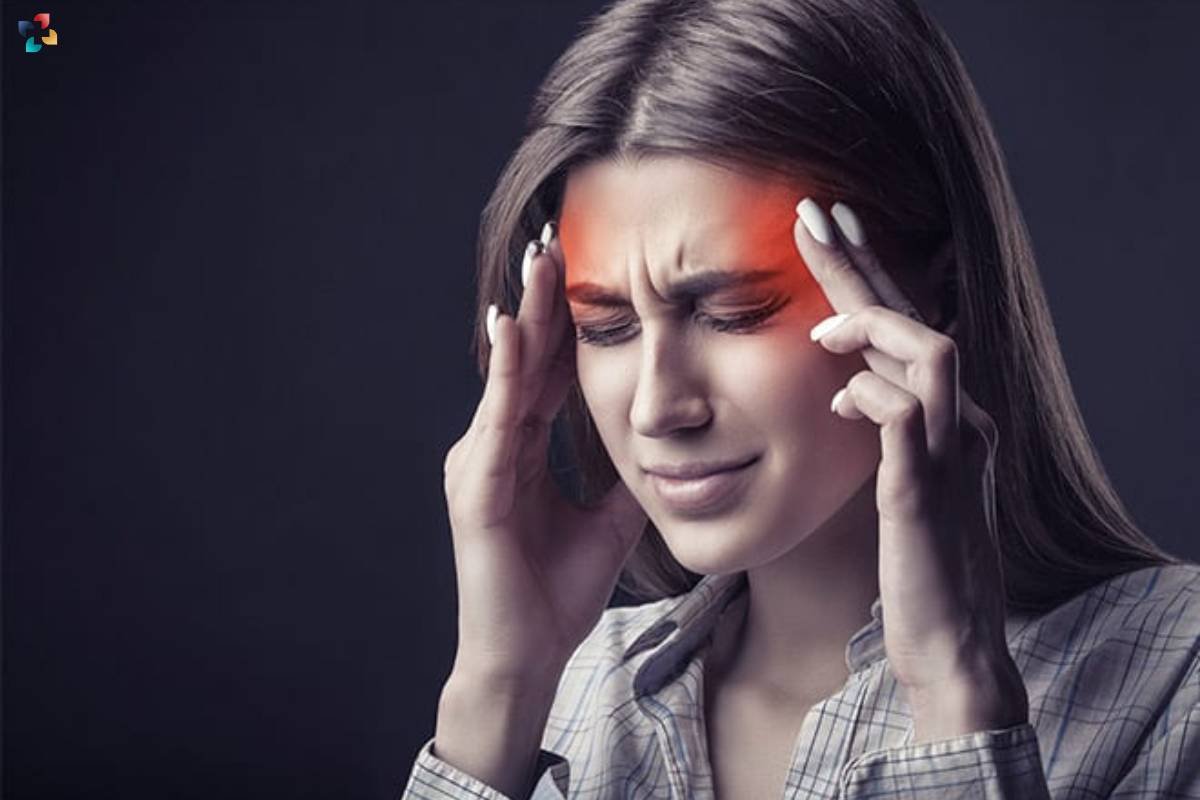Headaches are a common problem that most people experience at some point in their lives. While most headaches are not serious and can be easily treated with over-the-counter pain relievers, some uncommon causes of headaches factors that may require specific treatments or interventions. In this article, we will discuss eight uncommon causes of headaches.
Here are 8 Uncommon Causes of Headaches:
1. Caffeine Withdrawal
Caffeine is a stimulant that is found in coffee, tea, soft drinks, and many other products. People who consume large amounts of caffeine regularly can become dependent on it, and when they stop or reduce their caffeine intake, they may experience withdrawal symptoms, including headaches. These headaches can be severe and are often described as throbbing, intense, or debilitating.
Treatment:
If you suspect uncommon causes of headaches are caffeine withdrawals, you can try gradually reducing your caffeine intake over several days or weeks to avoid abrupt changes. You may also consider taking over-the-counter pain relievers, such as ibuprofen or acetaminophen, to help alleviate your headache symptoms.
2. Dehydration
Dehydration occurs when your body does not have enough water to function properly. This can happen if you do not drink enough fluids if you sweat excessively, or if you have diarrhea or vomiting. Dehydration can cause headaches that are typically mild to moderate in intensity and are usually accompanied by other symptoms, such as thirst, dry mouth, and fatigue.

Treatment:
If you suspect that the uncommon causes of headaches are dehydration, the best treatment is to drink plenty of fluids to rehydrate your body. Water, sports drinks, and electrolyte solutions are all good options. You may also consider taking over-the-counter pain relievers to help relieve your headache symptoms.
3. Sleep Apnea
Sleep apnea is a sleep disorder that causes breathing to stop and start repeatedly during sleep. This can lead to a lack of oxygen in the body, which can cause headaches. People with sleep apnea often wake up with headaches that are dull, throbbing, or pulsating, and that are located on both sides of the head.
Treatment:
The most effective treatment for sleep apnea is continuous positive airway pressure (CPAP) therapy, which involves wearing a mask over your nose and/or mouth while you sleep. The mask is attached to a machine that delivers a continuous flow of air to keep your airway open. Other treatments for sleep apnea may include lifestyle changes, such as losing weight, avoiding alcohol and sedatives, and sleeping on your side.
4. Temporomandibular Joint (TMJ) Disorder
The temporomandibular joint is the joint that connects your jawbone to your skull. TMJ disorder is a condition that affects this joint and can cause a variety of symptoms, including headaches. TMJ headaches are typically located in the temple area or behind the eyes and are often described as dull or aching.
Treatment:
Treatment for TMJ disorder may include oral appliances, such as splints or mouthguards, to help reposition the jaw and reduce stress on the joint. Other treatments may include physical therapy, relaxation techniques, and medication.
5. Migraine Associated Vertigo (MAV)
Migraine-associated vertigo (MAV) is a condition that causes dizziness, vertigo, and balance problems in people who experience migraines. MAV headaches are often described as throbbing, pulsating, or pounding, and are typically accompanied by other symptoms, such as nausea, vomiting, and sensitivity to light and sound.

Treatment:
Treatment for MAV may include medications to prevent migraines, such as beta blockers, antidepressants, or anticonvulsants. Other treatments may include physical therapy, vestibular rehabilitation, or cognitive behavioral therapy.
6. Trigeminal Neuralgia
Trigeminal neuralgia is a rare condition that affects the trigeminal nerve, which is responsible for sensation in the face. This condition can cause severe, shooting pain in the face that can be triggered by simple actions, such as brushing your teeth or talking. Trigeminal neuralgia headaches are typically located on one side of the face and are described as sharp, stabbing, or burning.
Treatment:
Treatment for trigeminal neuralgia may include medication, such as anticonvulsants or muscle relaxants, to help reduce nerve pain. In some cases, surgery may be necessary to relieve pressure on the affected nerve.
7. Idiopathic Intracranial Hypertension (IIH)
Idiopathic intracranial hypertension (IIH) is a condition that is an uncommon cause of headaches and increased pressure inside the skull, which can lead to headaches. IIH headaches are typically located in the back of the head and are described as pulsating or throbbing. Other symptoms of IIH may include vision changes, ringing in the ears, and neck pain.
Treatment:
Treatment for IIH may include medication, such as diuretics, to help reduce pressure inside the skull. In some cases, surgery may be necessary to relieve pressure on the optic nerve.
8. Giant Cell Arteritis (GCA)
Giant cell arteritis (GCA) is a condition that uncommonly causes headaches and inflammation in the blood vessels in the head and neck, which can lead to headaches. GCA headaches are typically located on one side of the head and are described as severe, throbbing, or pulsating. Other symptoms of GCA may include vision changes, jaw pain, and fatigue.

Treatment:
Treatment for GCA may include high-dose corticosteroids to reduce inflammation in the blood vessels. In some cases, other medications, such as immunosuppressants, may be necessary to help manage the condition.
BOTTOM LINE
Uncommon causes of headaches, and while most headaches are not serious, some headaches can be caused by less common factors that may require specific treatments or interventions. If you experience severe or frequent headaches, it is important to talk to your healthcare provider to determine the underlying cause and develop an appropriate treatment plan. In some cases, lifestyle changes, such as reducing caffeine intake, staying hydrated, and managing stress, may help prevent headaches from occurring. This blog ‘8 Uncommon Causes of Headaches’ helps you a lot in your daily lifestyle.








